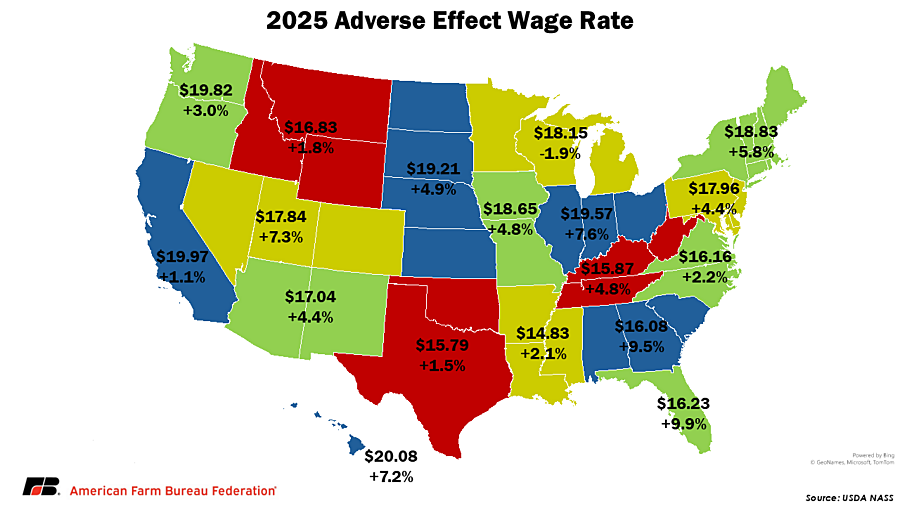Farmers who use the federal H-2A guest worker program scored a crucial victory last week when a district court halted overreach from the Department of Labor (DOL).
On Nov. 26, the U.S. District Court for the Southern District of Mississippi barred the DOL from enforcing its Worker Protection Rule, which unlawfully extended unionization rights to H-2A visa-holders.
The nationwide win resulted from a lawsuit with plaintiffs that included the American Farm Bureau Federation. It followed rulings in Georgia and Kentucky that stopped implementation in select states. Alabama Attorney General Steve Marshall signed onto the Kentucky lawsuit.

The H-2A guest worker program is a critical resource for many Alabama farms that suffer from local labor shortages, said Alabama Farmers Federation’s Blake Thaxton. The November ruling underscored the program’s importance, he added.
“The H-2A program is strictly regulated and includes extensive protections for guest workers,” said Thaxton, a commodity director who works with specialty crop farmers. “The Department of Labor’s misnamed rule is redundant and a clear example of regulatory overreach. We’re thankful the courts have ruled in favor of a commonsense approach.”
While hailing the courts’ ruling, Thaxton highlighted the need to amend the mandatory Adverse Effect Wage Rate (AEWR), or minimum wage for guest workers. The U.S. Department of Agriculture’s Farm Labor report sets the AEWR each year, with large spikes coming in the last two years. On average, the AEWR will rise 4.5% in 2025, a hike that varies by region.
In Alabama, farmers will battle a 10% increase as guest workers’ hourly wage settles at $16.08. That’s more than double the non-guest worker minimum wage of $7.25.
The new AEWR would become official when published in the Federal Register in December.
Thaxton said a bright spot could be on the horizon thanks to U.S. Rep. Robert Aderholt, R-Alabama. He’s included language in the U.S. House’s end-of-year appropriations bill to freeze the AEWR at January 2023 levels, or $13.67 in Alabama. Congress must pass the spending bill by Dec. 20.
Courtesy of ALFA Farmers.













